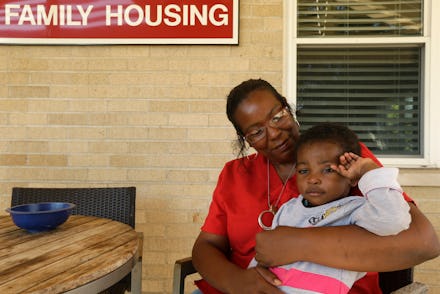Politicians Don't Understand Most Americans, and the Research Proves It

Inequality has created an empathy gap between the upper class and everyday Americans — few politicians, businessmen, and lawyers actually see the people affected by their work, especially when they remain ensconced in DC. This means politicians must rely on anecdotes from the campaign trail and those with whom they interact. This in turn creates an empathy gap.
The empathy gap is thus rooted in our society's dramatic increase in inequality. Economist David Madland argues, "Studies across U.S. states, of the United States over time, and across countries all find that societies with a strong middle class and low levels of inequality have greater levels of trust of strangers." This trust has economic advantages. Madland cites one study which found "'a 10 percentage-point increase in trust increases the growth rate of GDP by 0.5 percentage points' over five years." International studies have confirmed this effect.
This decline in social trust begins a downward spiral. Bo Rothstein and Eric Uslaner note in a fabulous paper for World Politics, "The best policy response to growing inequality is to enact universalistic social welfare programs. However, the social strains stemming from increased inequality make it almost impossible to enact such policies." The lack of social trust caused by inequality makes increasing opportunity harder, which further erodes social trust and increases inequality. Wealthy citizens see themselves as "makers" and the poor as "takers," while the poor see the rich as selfish. Rothstein and Uslaner continue later, "Unequal societies find themselves trapped in a continuous cycle of inequality, with low trust in others and in government and policies that do little to reduce the gap between the rich and the poor and to create a sense of equal opportunity."
Other research has confirmed the existence of this empathy gap. Last year, Paul Piff caused quite a stir when he published his finding that upper class individuals were more likely to break driving laws, take goods from others, lie in a negotiation, cheat, and endorse unethical behaviour (this, of course, stands at odd with Charles Murray's rather naïve belief that the rich are rich because of their superior moral scruples). Piff summarizes his conclusions:
"While having money doesn't necessarily make anybody anything, the rich are way more likely to prioritize their own self-interests above the interests of other people. It makes them more likely to exhibit characteristics that we would stereotypically associate with, say, assholes."
But other developed nations are different. While America abandons (or mocks) its poor, other countries work to establish basic living standards. Switzerland, for instance, will soon vote to establish a guaranteed income of $33,000 a year (roughly twice the U.S. poverty line). Nearly all members of the Organization for Economic Cooperation and Development (OECD) have higher levels of upward mobility, lower levels of inequality, and fare better on indicators of health and well-being than the United States. One of the key factors is a robust social safety net, something that is constantly being eroded in America under the guise of “debt reduction.” The Economic Policy Institute finds that the U.S. lags behind other OECD countries in social expenditure as a percentage of GDP, and it shows: the U.S. also leads the OECD in poverty.
The U.S. is drastically unequal. Inequality creates the “skybox” effect, where the rich and poor rarely brush shoulders, making it harder for the wealthy and middle class to empathize with the plight of the poor. Programs like food stamps have taken the poor out of the breadlines and hidden them away in the slums. Studies show that America is becoming a less empathetic society, which is bad news for programs that rely on decency to work. F. Scott Fitzgerald cautioned in The Great Gatsby, “Whenever you feel like criticizing anyone… just remember that all the people in this world haven't had the advantages that you've had.”